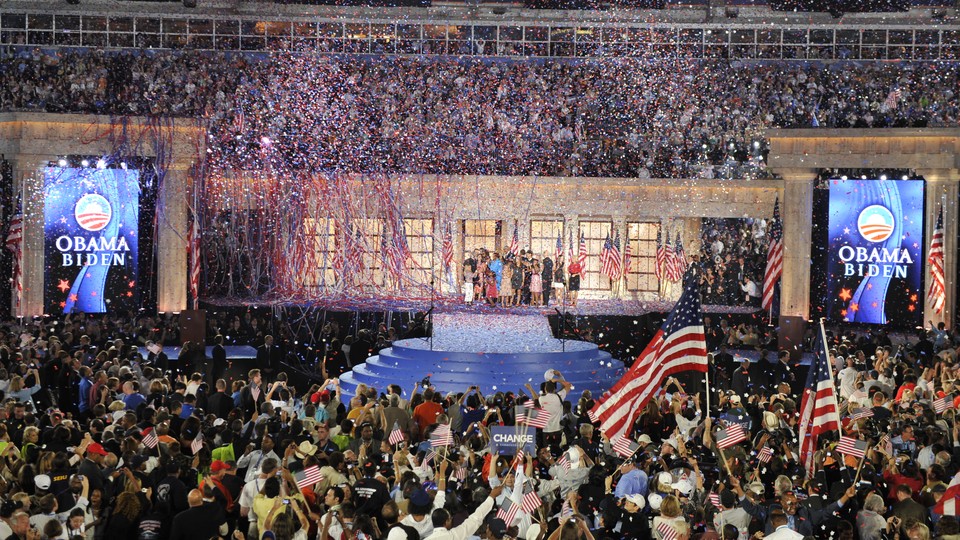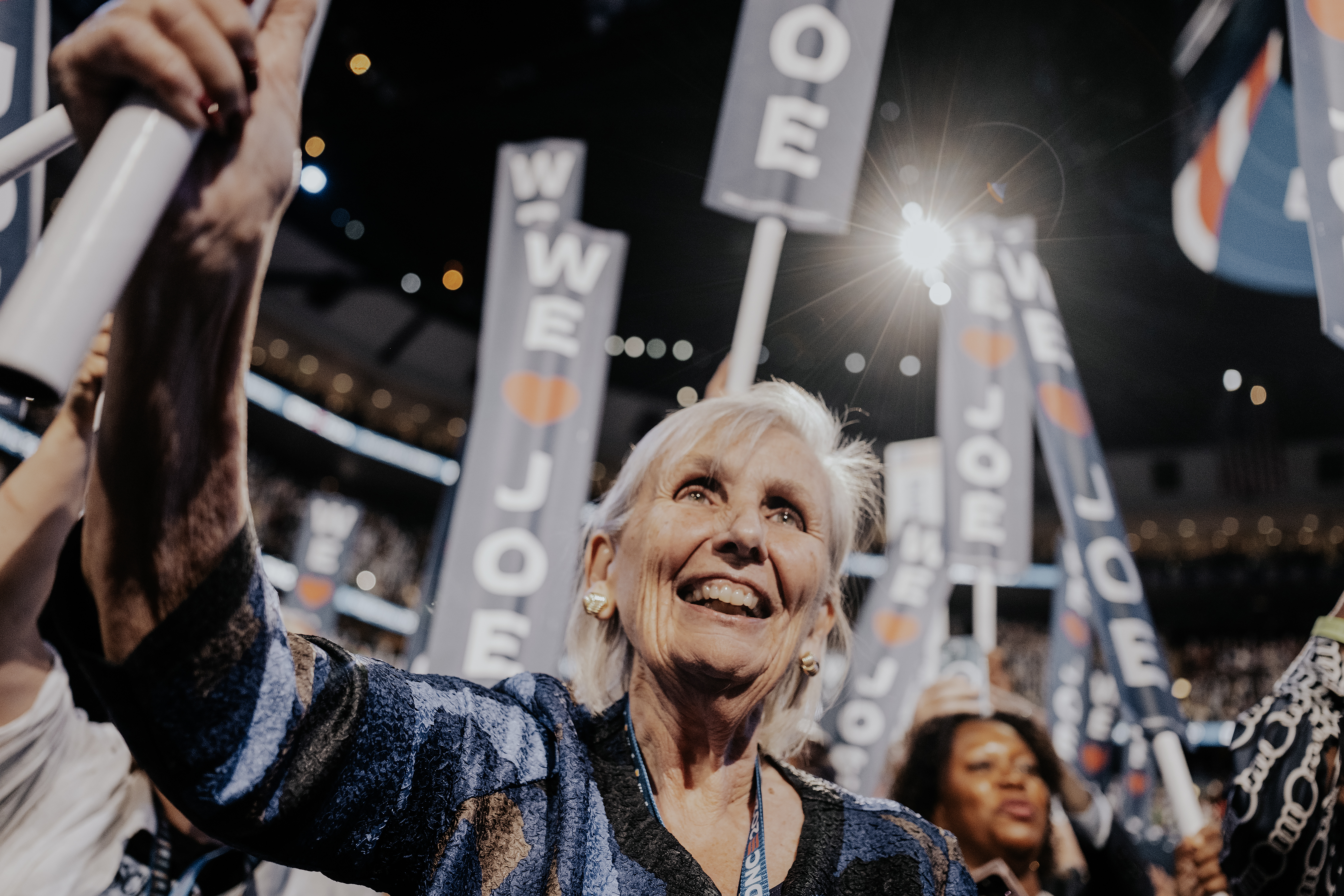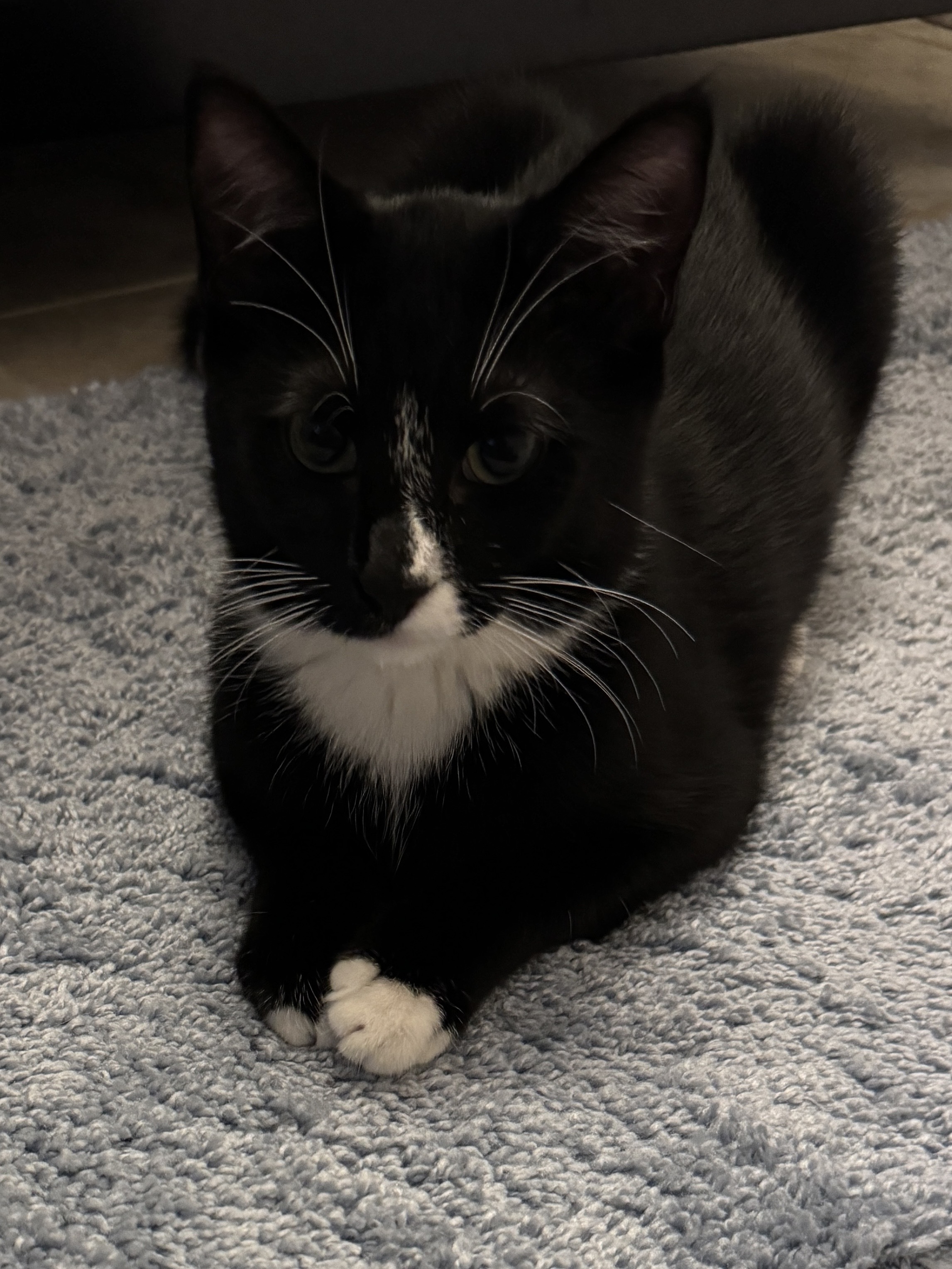An Old-Time American Political Convention
8 min read
This is an edition of The Atlantic Daily, a newsletter that guides you through the biggest stories of the day, helps you discover new ideas, and recommends the best in culture. Sign up for it here.
The Democrats have met, they’ve nominated a candidate, and now they’re all going home. Their meeting was not a replay of the 1968 disaster; it did not devolve into a divisive confrontation among factions; it did not feature tense ballot fights stretching into the wee hours. It had some goofy moments, some star power, and some speeches that should have been canceled before they were even scheduled. It had logistical problems and ran too long in places. The nominees for president and vice president both gave speeches that were, by any political standard, well-delivered bangers.
In other words, it was a completely typical American political convention.
Younger Americans may not remember a time when conventions were ordinary political events. Delegates in funny hats would introduce themselves with long and dopey encomiums to their state: Madam Chair, the great state of Vermont, the Green Mountain people, the home of Ethan Allen, the place where Cal Coolidge was born and then left because we didn’t want him here, home to many cows and moderately good cheddar …
And then they would cheer and cast their vote for the nominee, exactly as everyone knew they would. They still do those kinds of things now, but they’re not as fun to watch: Conventions have become shows centered on personalities. They are shallow, glitzy affairs that are meant to elevate the nominee to superhero status, which is always a problem because most politicians, even the best of them, just aren’t that interesting.
This cultish trend probably began in earnest at the 2008 Democratic National Convention, when Barack Obama walked onto a stage that looked like a cross between the White House and Mount Olympus—which seemed to fit the theme that the Democrats were nominating President Zeus. In 2012, the Republican National Convention featured Clint Eastwood dressing down the incumbent president in absentia by talking to an empty chair, a pedestrian and stupid stunt. In 2016, the Democrats dropped balloons that looked like giant, star-studded beach balls on nominees Hillary Clinton and Tim Kaine. And in 2020, the Republicans held their convention in … well, all over the place, including Charlotte, North Carolina, and Washington, D.C. They even used the White House, a move that qualified for the Hatch Act Violation Hall of Fame. (“Nobody outside of the Beltway really cares,” White House Chief of Staff Mark Meadows said, but as a federal employee at the time whose career was governed by the Hatch Act, I cared quite a bit.)
We shouldn’t idealize the old conventions too much: They were also sometimes merely showy coronations, but they were still better than what we’ve seen from the parties in the 21st century. The first convention I really watched closely was the GOP gathering in Dallas in 1984, when I was in my 20s and already a confirmed Ronald Reagan voter. Except for Jeane Kirkpatrick’s searing foreign-policy speech in which she excoriated the Democrats as the “blame America first” party, it wasn’t particularly substantive, but Reagan and his people knew how to do good television.
The most memorable part of the 1988 Democratic convention was not nominee Mike Dukakis’s acceptance speech, but the amazement at a young governor named Bill Clinton—not because Clinton was so good onstage, but because his nomination speech for Dukakis just wouldn’t seem to end.“The [1988] speech,” as an ABC News retrospective on Clinton noted this week, “turned out to be memorable but in the wrong way. Clinton spoke for 35 minutes, much longer than his planned 15, boring the crowd.”
The problem, of course, is that when it comes to political conventions, “interesting” usually means “disastrous.” The 1980 Democratic convention was interesting, because Ted Kennedy rolled into it hoping to take the nomination away from Jimmy Carter. Instead, he gave his famous “the dream shall never die” speech, and helped ensure Carter’s loss. The 1992 Republican convention was really interesting, because nominee George H. W. Bush ceded time to insurgent candidate Pat Buchanan, who proceeded to give a brutal, nasty culture-war speech; the late political writer Molly Ivins quipped that Buchanan’s address “probably sounded better in the original German.” A wounded Bush lost the eventual three-way matchup with Bill Clinton and the independent candidate, the showboating billionaire H. Ross Perot.
This week, the Democrats did something that seems unusual but was really a reversion to normality: They coalesced around a nominee, they made upbeat speeches about how great things would be when their nominee was elected, they trotted out some celebrities to affirm that the nominee was great but also cool, and then they dropped the balloons and wrapped things up. That’s all a convention is supposed to do.
The Republican gathering this year, however, was the ultimate expression of the political convention as a creepy cult meeting. The Democrats, despite being the current Electoral College underdogs, seemed happy. The Republicans seemed angry—and this was before they found out that their entire strategy was aimed at a candidate, Joe Biden, who was about to drop out. The RNC was like a beery yard party where all your weirdest neighbors gather around the grill pit and talk in really loud voices about how much they hate everyone else on the block.
The Democrats had a normal lineup of former leaders, including former Presidents Clinton and Obama. The GOP, a party that could have drawn on several former Cabinet secretaries and one other living former president, had almost none of their most prominent former elected officials in attendance. Instead, the Republican delegates watched Hulk Hogan tear his shirt off as the prelude to their nominee giving a long, dull, self-pitying version of his usual rally speech. (A few Republicans, such as former Representative Adam Kinzinger, did give very good convention speeches this year, but they gave them at the Democratic convention.)
I’m glad the Democrats have returned to the old-time religion when it comes to conventions. They’re supposed to be big events where the party puts on its best face and reminds Americans that participatory democracy is a wonderful thing—sometimes silly, sometimes serious, but always awesome.
Related:
- Young Democrats have a new favorite Clinton.
- The surreal experience of being a Republican at the DNC
Here are four new stories from The Atlantic:
- Kurt Andersen: My drug dealer, RFK Jr.
- Trump and the cocaine owl
- What Kamala Harris doesn’t get about food costs
- How to solve the summer-child-care nightmare
Today’s News
- Robert F. Kennedy Jr. announced that he is suspending his presidential campaign and endorsing Donald Trump.
- Sixteen GOP-led states filed a lawsuit against the Biden administration in an effort to stop a new federal program that could give a path to citizenship to an estimated half a million undocumented immigrants who are married to U.S. citizens.
- Indian Prime Minister Narendra Modi visited Ukrainian President Volodymyr Zelensky in Kyiv, where they discussed the Russia-Ukraine war. It was the first time an Indian prime minister had visited Ukraine since the early 1990s.
Dispatches
- The Books Briefing: There’s no reason to agonize over not finishing books, Maya Chung writes.
- Atlantic Intelligence: MAGA memes are getting an AI makeover, Damon Beres writes.
Explore all of our newsletters here.
Evening Read

It’s Sorkin Again in America
By Franklin Foer
As Cory Booker gaveled out the third night of the Democratic National Convention, he told the delegates that he wanted to pose for a selfie from the podium. But before he went ahead with the photo, he had to ritually close the proceedings. “All those in favor say ‘Aye,’’’ he bellowed. Then more playfully, he channeled Semisonic. “Folks, it’s closing time. I don’t care where you go, but you can’t stay here.” Convention is a word generally associated with dutiful tedium, so why the rampant joy at this one?
Read the full article.
More From The Atlantic
- Christian parents have a blueprint for IVF.
- Kamala Harris defines herself—but not too much.
- Adam Serwer: The DNC should have had a Palestinian American speaker.
- Tim Walz’s understudy could get a history-making promotion.
- Bidenomics without Biden
- The DNC had good energy. Now what?
Culture Break

Look. These photos of the week from around the world show the Mud Olympics, in Germany; a scene from the Democratic National Convention, in Chicago; an Israeli air strike on Gaza; a greased-pole competition in Indonesia; and more.
Watch (or skip).Blink Twice (out now in theaters), the actor Zoë Kravitz’s directorial debut, is a stylish thriller about being intoxicated by wealth, Shirley Li writes.
Play our daily crossword.
P.S.
Those of you who follow me on social media may have seen the news that we’ve added a new kitty to the Nichols home. We lost our beloved Carla, a truly amazing cat I wrote about here, this past spring. My wife and I have been grieving the loss of our friend of so many years, and we just couldn’t think about bringing home another cat. If you’ve ever lost a pet, you know how that is: Animals are not interchangeable pieces of furniture that you can trade in or replace when they wear out. They’re members of the family, and you don’t fill the space with another one right away.
We went to our local shelter about a month ago, and although we wanted to bring home every cat in the place, we just couldn’t do it, and we went home still a bit choked up. This week, however, we felt that the time was right. We went back and saw so many wonderful possibilities: little brown tiger twins, some oldsters who needed a new home, a bonded couple of young cats named (I kid you not) Romeo and Juliet, who were adopted the day we visited. And then we saw this five-month-old tuxedo cat, black with white paws and a white streak down her nose. She jumped up and down: Hey, never mind the tigers, I’m right here.
And so, we took her home. We thought about names, and because Carla was named after a character in one of my favorite shows, Cheers, we decided to keep with that tradition. Lilith Carla Nichols—Lily, for short—is now snoozing behind me. She is adorable, and already demanding head scratches and treats. We’ll never have another Carla—but we’d like to think that Carla helped pick her for us.
— Tom

Stephanie Bai contributed to this newsletter.
When you buy a book using a link in this newsletter, we receive a commission. Thank you for supporting The Atlantic.



